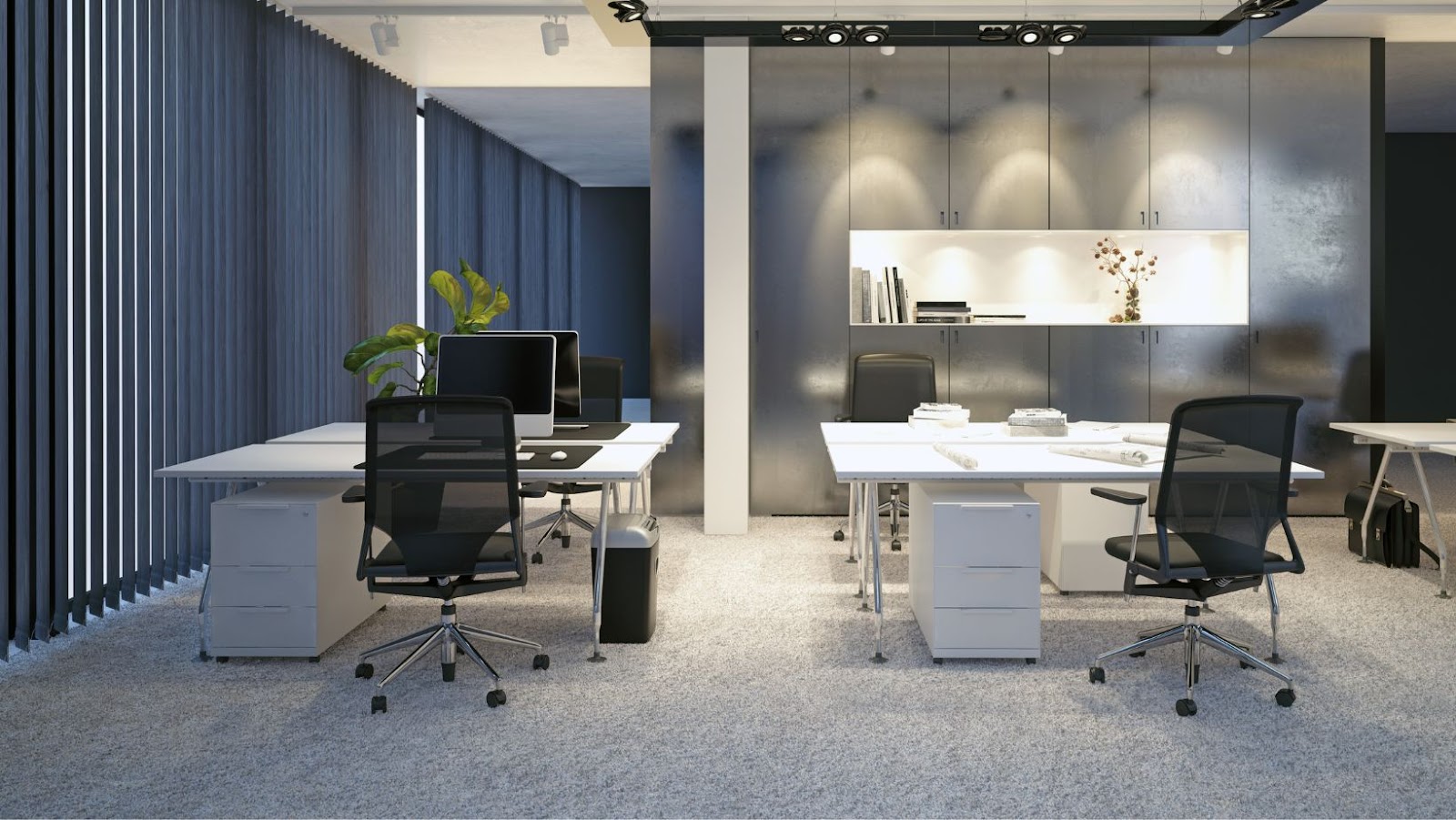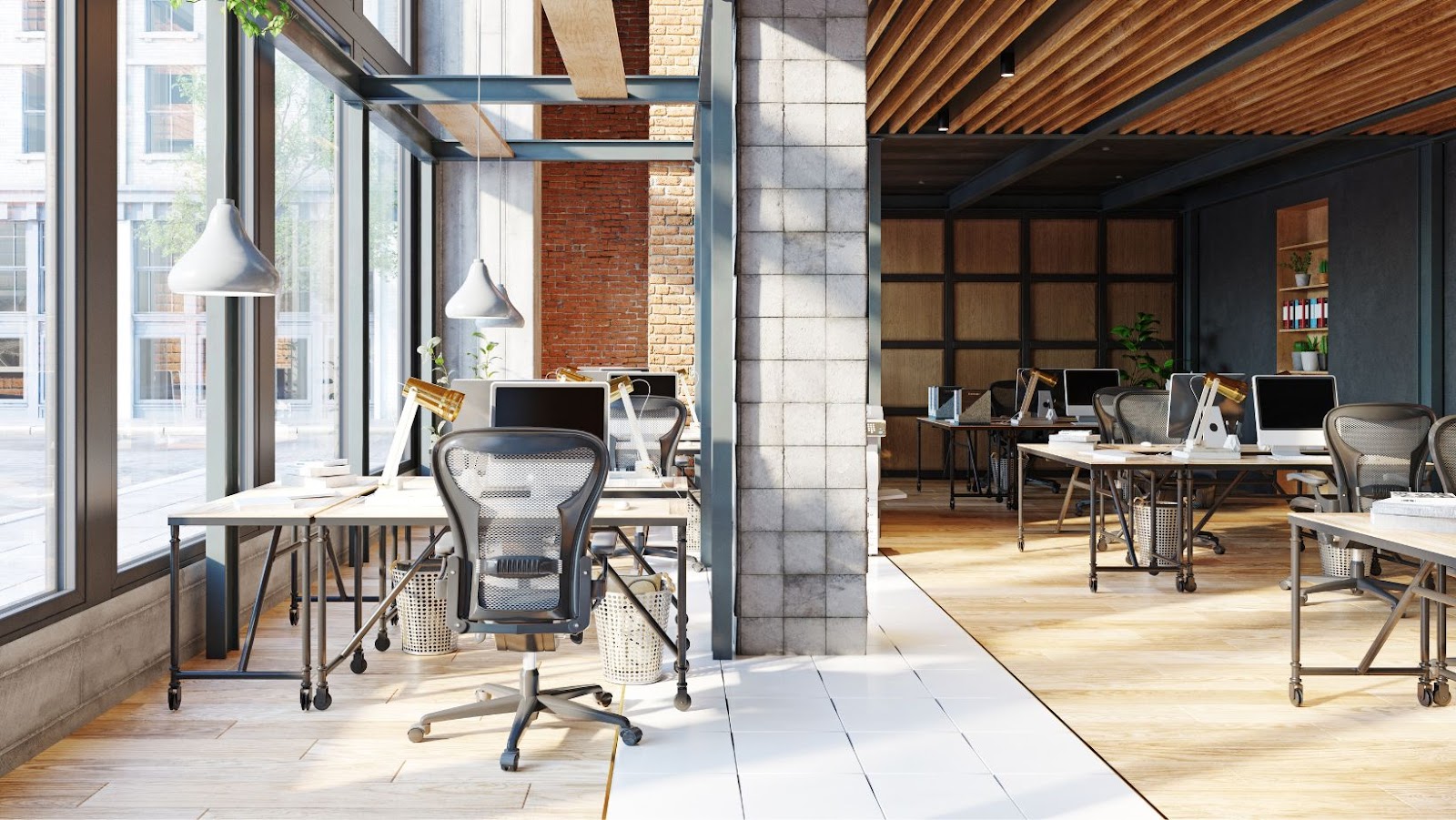Maintaining a safe and accident-free workplace is of utmost importance for the well-being of employees and visitors. One crucial aspect of workplace safety is choosing the right flooring that offers slip resistance, particularly in areas prone to spills or high foot traffic. Slip-resistant flooring helps prevent slips, trips, and falls, reducing the risk of injuries and maintaining a productive work environment. In this article, we will explore some of the best slip-resistant flooring options for the workplace, providing valuable insights on how to enhance safety and reduce accidents. Delving into the realm of slip-resistant flooring solutions for the workplace, a crucial consideration arises: what is polyaspartic coating? This specialized coating, with its unique properties, plays a pivotal role in bolstering durability and safety across diverse industrial and commercial environments.
1. Non-Slip Vinyl Flooring
Non-slip vinyl flooring is a popular choice for workplaces due to its durability, affordability, and slip-resistant properties. Vinyl flooring is available in various textures and patterns that offer enhanced grip. Look for vinyl flooring with a textured surface or embossed pattern, as these provide better traction. Additionally, opt for vinyl flooring that meets industry standards for slip resistance, such as having a high slip resistance rating (R-rating) or a high coefficient of friction (COF). Non-slip vinyl flooring is easy to clean and maintain, making it suitable for a wide range of workplace environments.
2. Anti-Slip Carpet Tiles
Carpet tiles with anti-slip properties are another excellent option for slip-resistant flooring in the workplace. These tiles are specifically designed to provide better traction and reduce the risk of slips. They typically feature a textured surface or a rubberized backing that improves grip.

Anti-slip carpet tiles are beneficial in areas where comfort and sound absorption are desired, such as office spaces or conference rooms. When selecting carpet tiles, ensure they meet relevant safety standards and have a slip resistance rating appropriate for the intended use.
3. Rubber Flooring
Rubber flooring is highly slip-resistant and an ideal choice for workplaces with high foot traffic or areas prone to spills, such as kitchens or production areas. Rubber flooring offers excellent traction, even when wet, making it a safe flooring option. It provides cushioning, reducing the impact on joints and reducing fatigue for employees who stand for long periods. Rubber flooring is also resistant to stains, chemicals, and wear, making it durable and easy to maintain. Consider using textured rubber flooring or those with raised patterns for enhanced slip resistance.
4. Epoxy Flooring with Non-Slip Additives
Epoxy flooring, when combined with non-slip additives, provides an effective solution for slip-resistant workplace flooring. Epoxy or polyurethane floor paints are durable and versatile materials that can be applied over various substrates, including concrete. By incorporating non-slip additives into the epoxy coating, the floor surface becomes more textured and less prone to slips. Common non-slip additives for epoxy flooring include aluminum oxide or silica beads. Epoxy flooring is seamless, easy to clean, and can withstand heavy loads, making it suitable for industrial or commercial settings.
5. Textured Ceramic or Porcelain Tiles
Textured ceramic or porcelain tiles are an aesthetically pleasing and slip-resistant option for workplaces. These tiles feature a textured surface that improves traction, reducing the risk of slips and falls. They are available in a wide range of designs, colors, and sizes, allowing you to create a visually appealing environment without compromising safety. It’s important to choose tiles specifically designed for slip resistance and ensure they meet the necessary safety standards.

Selecting the right slip-resistant flooring for the workplace is crucial for ensuring employee safety and minimizing accidents. Non-slip vinyl flooring, anti-slip carpet tiles, rubber flooring, epoxy flooring with non-slip additives, and textured ceramic or porcelain tiles are among the best options available. When choosing slip-resistant flooring, consider the specific requirements of your workplace environment, such as the level of foot traffic, the presence of moisture or spills, and aesthetic preferences. Additionally, ensure that the chosen flooring meets relevant safety standards and has appropriate slip resistance ratings. By investing in slip-resistant flooring, you create a safer work environment that promotes employee well-being and reduces the risk of workplace accidents.




